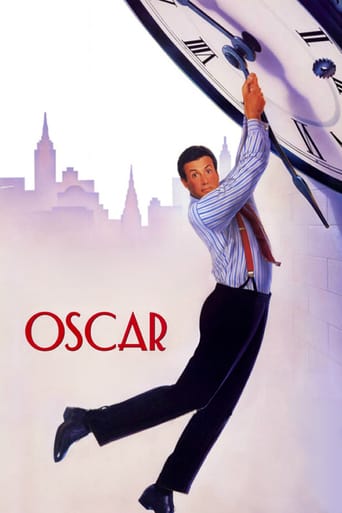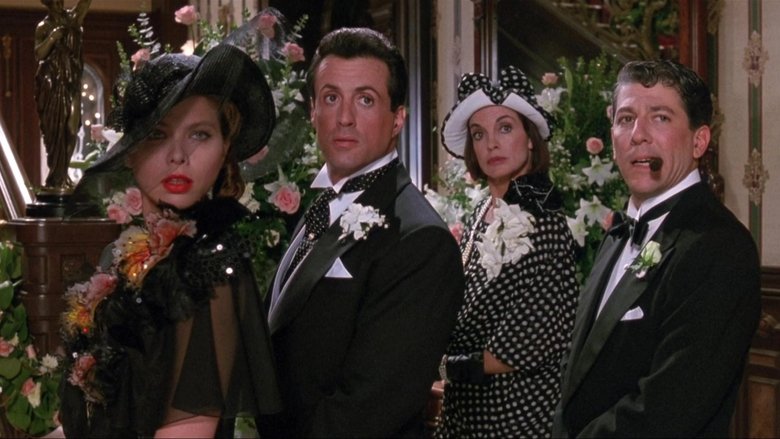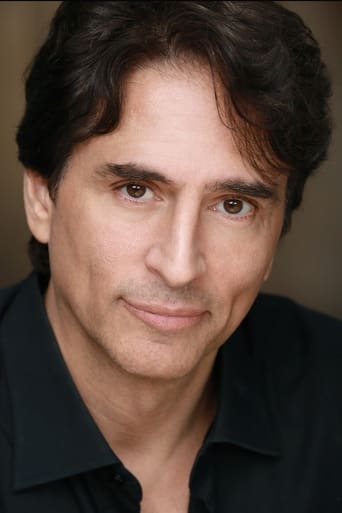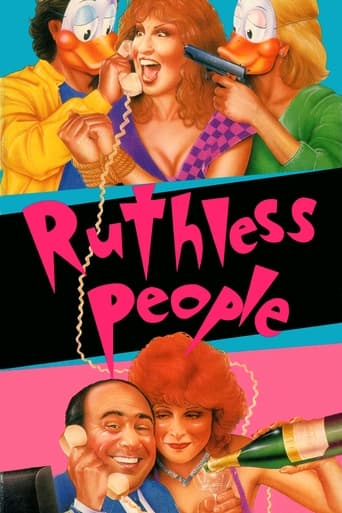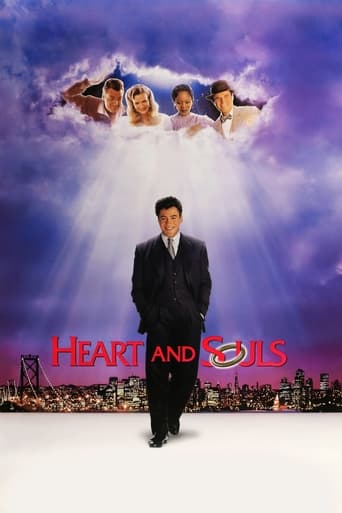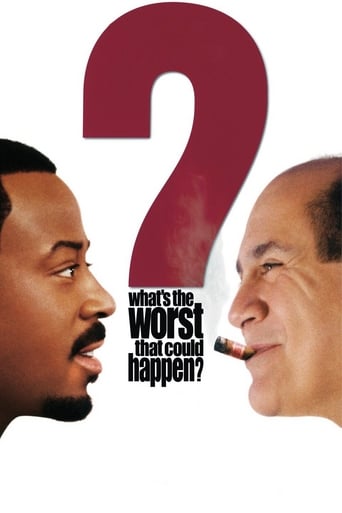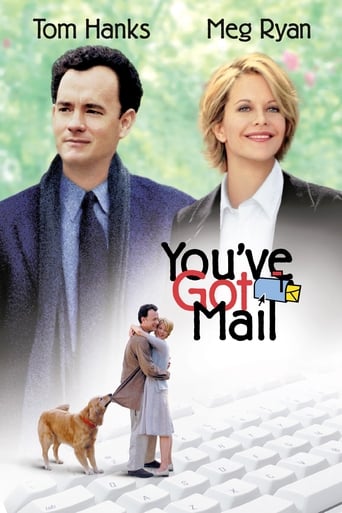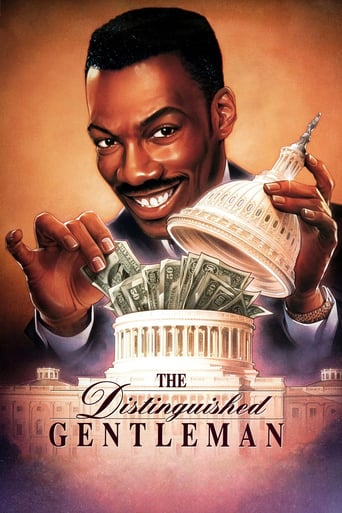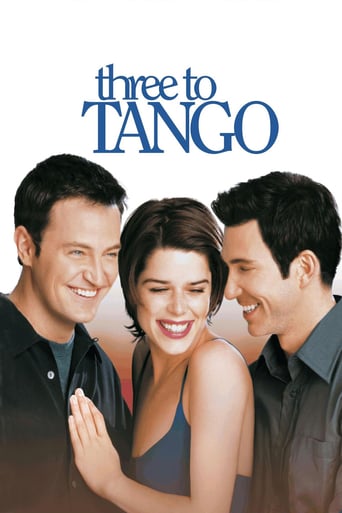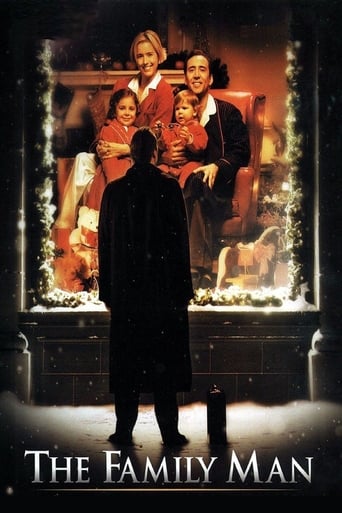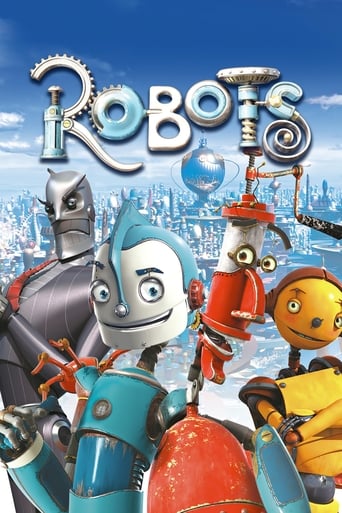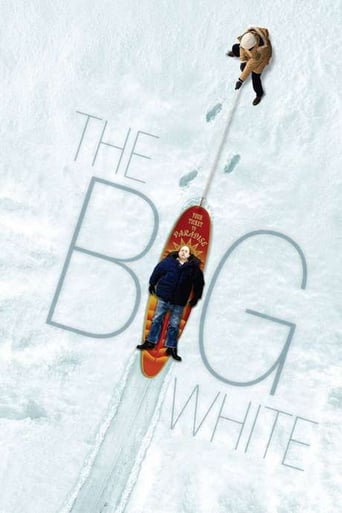Oscar (1991)
Angelo "Snaps" Provolone made his dying father a promise on his deathbed: he would leave the world of crime and become an honest businessman. Despite having no experience in making money in a legal fashion, Snaps sets about to keep his promise.
Watch Trailer
Cast
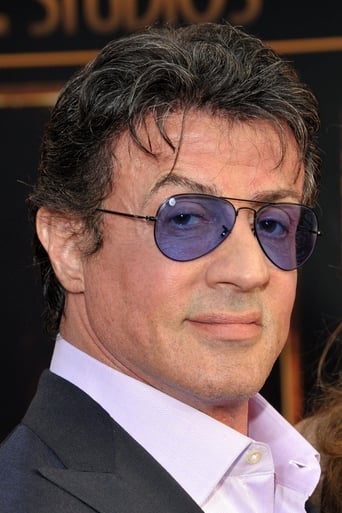


Similar titles
Reviews
Very disappointing...
hyped garbage
At first rather annoying in its heavy emphasis on reenactments, this movie ultimately proves fascinating, simply because the complicated, highly dramatic tale it tells still almost defies belief.
The movie turns out to be a little better than the average. Starting from a romantic formula often seen in the cinema, it ends in the most predictable (and somewhat bland) way.
I don't know what the critics were smoking back in 1991 to give this hilarious film a negative review, maybe it was the beginning of a more "dark Era" and this attempting at a thirties Hollywood screwball comedy film, felt out of place or it was the "jumping in the bandwagon" bash against the great Sylvester Stallone, the "winner of the worst actor of the decade" by the "fabulous" Razzies (what a joke !!). Unfortunately, the audiences teamed with the critics and "Oscar" was a major flop when it was released in theaters, but became huge succesful on video and found its audience there, even if it's still largely underrated nowadays."Oscar" is a delightfully well-staged and nicely paced "'comedy of errors", based on the 1967 French film of the same name, starring Louis de Funès, but with the setting moved to 1931, during the Depression-era in New York City, telling the story of a Mob Boss, Angelo "Snaps" Provolone (Stallone), trying to going straight after a promise he made to his dying father, Eduardo (Kirk Douglas), but it won't be an easy task...This was the first John Landis' film, after the major Box Office hit of his "Coming to America" ('88) starring Eddie Murphy, and probably the expectations were higher for the director to deliver another audience friendly contemporary comedy, but Landis took a risk honoring (and resurrecting) a dead genre and glad he did so.The performances are all top notch, well directed by Landis and perfectly adequate to the characters they're playing, the settings and the tone of the movie: Sly Stallone is a great comedy actor, he have the right delivery timing, funny expressions and truly dominates the central role of the film with the great support of Peter Riegert and Chazz Palminteri as his (not so bright) henchmen; Ornella Muti & Marisa Tomei as his dominating wife and spoiled teenage daughter; Landis' usual collaborator, the veteran Don Ameche as Father Clemente; Tim Curry as the linguistic Dr. Poole; Vincent Spano as the greedy accountant and the duo Harry Shearer & Martin Ferrero, playing the tailors Finucci Brothers, which are hilarious. Kirk Douglas joined the cast in the prologue, alongside Yvonne De Carlo (God Bless Lily Munster !!) in her last screen role, offering a memorable cameo.In short, this is one of the funniest comedies ever put on-screen, people shouldn't listen to Stallone's haters or the snobbish movie critics, who probably didn't even get the movie. For fans of a good farce, this is the movie to watch, i give it a solid 9 stars !!
I think Ken Hanke's remark, when writing in North Carolina's "Mountain Xpress" newspaper, that 1991 film "Oscar" is a "bad idea badly executed" cuts closest to what I thought of this John Landis comedy than any other remark. Indeed, you cannot fault its ambition, and the film is not without the odd laugh, but I think there is a very real and very cutting reason Sylvester Stallone is not an actor especially synonymous with comedy and this film is it.There is a branch of film theory which looks at the careers of people such as Stallone and, to a greater extent, Arnold Schwarzenegger in a post-Cold War world; namely, that without an enemy, in the form of the Soviet Union, for the American film industry to flex its muscles toward in the form of a "Rambo" series, big-money action stars such as the aforementioned Stallone and Schwarzenegger are redundant in the same way a vast arsenal of weaponry capable of untold destruction might be.With Reagan out of the White House (and the more effeminate, 'catch-all' William Clinton in), and with the American nation lacking in an ideological enemy, it is no wonder that films such as "Stop! Or My Mom Will Shoot!"; "Junior" and, indeed, "Oscar" became more prominent in the output of either of these actors. Actioners were still made, but the leads in these films suddenly seemed vulnerable – the protagonists in "Eraser" and "Cliffhanger" were no longer really the gun-toting action heroes they would have been a decade earlier. Counter-arguments might be made with regards to "Judge Dread" and "Demolition Man".As for "Oscar", it is tough to think that the film is anything else other than close to terrible. It becomes too carried away by its own premise, and even begins to come across as quite arrogant in its thinking that we will embrace the approach to its material – that of a frenetic series of events which causes numerous comedic comings-and-goings. Meanwhile, one grows weary of being cooped up in the lead character's huge Chicago mansion, and begins to long for some sort of adventure or characterisation set outside of it. By the final reel, John Landis is relying on the spectacle of Sylvester Stallone emptying out onto a desk a handbag of lady's underwear to induce a laugh. Needless to say, it doesn't arrive.In early 1930's prohibition America, Stallone is Angelo Provolone – an Italian-American gangster at the peak of his powers in protection and liquor racketeering. His tale unfolds over a single day one month on from his father's death and on the brink of a major investment deal with a local bank whereby Stallone's outfit will leave the criminal underworld and go 'straight'. There are amusing references, amusing for the fact they are eerily topical 25 years on, as to just how 'straight' Angelo's outfit will be now that he is wrapped up in the banking industry. His reason for doing this was brought on by his father who, on his death-bed, emphasised how Stallone's actions as a mobster brought shame on the Provolone family name. Thus, Angelo seeks to do his father proud in hindsight of this revelation and become law-abiding.But the film is far from the touching, soul-shattering tale of redemption it ought to have been as a son strives to fulfil a dying wish. Surely the respectable thing would have been to begin again from the bottom of a different career ladder and work one's way up."Oscar" essentially comes to form a series of comedic interludes set in one very large house which revolve around far too many different characters wanting very different things and a spate of mix ups involving a set of people you might get if you chemically hybridised "Goodfellas" with "Bugsy Malone". One of these mock-ups is the character played by Vincent Spano, who does a wonderful job in portraying both the innocence and ruthlessness of Provolone's shrewd bookkeeper Anthony – he is in love with someone more connected to the Provolones than first appears. Meanwhile, the more we get of Angelo's bored and frustrated daughter Lisa (Marisa Tomei), the more we want the film to be about her tribulations of staring down a Mafioso dad and an arranged marriage.Landis doesn't capture the right tone. Kids might find the spectacle of Stallone standing in an office pointing a chicken drumstick at somebody having first thought it a gun to be amusing, but the adults are unmoved; meanwhile, nobody under the age of 25 will understand why the fact Lisa is reading "Lady Chatterley's Lover" is so important to who she is and where she wants to be when the films introduces her for the very first time. For younger viewers, the repetitiveness of the film's setting; tone and material might become tiresome, while for the adults there just isn't enough meat on the bone to get stuck into to begin with.Otherwise, the film is actually fairly boring all things considered. It is a long time since I have been genuinely bored with a film like I was with "Oscar". Stallone's character's quest to leave behind the criminal underworld - ditching, in the process, all use of gangster slang his bodyguards might use and resorting to intimidation to make a point - becomes hopelessly lost amidst a slew of supporting acts coming; going; leaving and returning for a variety of inane reasons and that real sense of mind-numbing claustrophobia as the mansion they'll all occupying seems to close in on us. It would be impossible to recommend "Oscar".
Attempting to "go straight" proves unexpectedly challenging for a Prohibition Era gangster in this comedy of errors from John Landis. The leading role goes to Sylvester Stallone, who does remarkably well with the part (he is goofy yet believable as a much-feared mobster) given how much of the film relies on his incredulous reactions to all of the absurdity occurring around him. The supporting performances are a tad uneven, with Marisa Tomei a little too shrill for her own good and Vincent Spano bland in a role akin to Ryan O'Neal in 'What's Up, Doc?', however, on the flipside, Chazz Palminteri, Peter Riegert and Eddie Bracken are very, very funny. And then there is Tim Curry, whose giddy take on an American Henry Higgins needs to be seen to be believed. He has some of the best lines too as Palminteri takes "oxymoron" for an insult and as he apologises and turns around to retuck his shirt after Curry comments "you've got a dangling participle"! Some of the mounting coincidences as the film moves along admittedly push the bounds of credibility, but that is part of the fun as the film highlights everything that could possibly go wrong with turning one's business legitimate. The film also features a delightful animated opening credits scene and for a G/PG rated film (depending on which country you live in), the film successfully implies quite a bit without ever explicitly stating it.
"Oscar" is set in a single day and centers around a central location in the period of the early '30s: the mansion of going-straight mob boss Angelo "Snaps" Provolone.The environment is a tangled web of confusing and conflicting circumstances, all done with purposeful absurdity and silliness. New challenges and complications muddy up the day of Snaps attempting to lead the honest life after giving one last request to his dying father. Can he do it? Well, maybe if he manages to settle down and think apart from so many building distractions, such as dealing with anyone from his spoiled daughter and pestering son-in-law-to-be to his simple henchmen that need looking after and wising up.The flow starts to feel routine and eventually claustrophobic due to seeing the same do-nothing areas, as well as the situational humor eventually turns tedious from watching similar gags run their course. Minor characters stand apart such as the informant "Five Spot Charlie" with his eccentric lip smacking and stuttering; Chazz Palminteri plays a hit-man who tears up to touching events. Though the laughs don't always come so easily with "Oscar" compared to other Landis films like "Animal House," "Three Amigos," "Coming to America," "Trading Places" and even "American Werewolf" considered.This is a movie that relies heavily on its situations and characters--since it was modeled after a stage play--however some of the cast aren't so hysterical that it radiates across the screen to make a viewer instantly loosen up and go with its zaniness. Stallone, for instance, frequently uses this kind of booming intonation like a professional wrestler to show aggravation; it's commanding, but not for comedy's sake. This had potential to be a breezy if still fun film, though some sparks went missing to clench a solid pacing and the movie in turn felt up and down. Had it one moment, gone flat the next.

